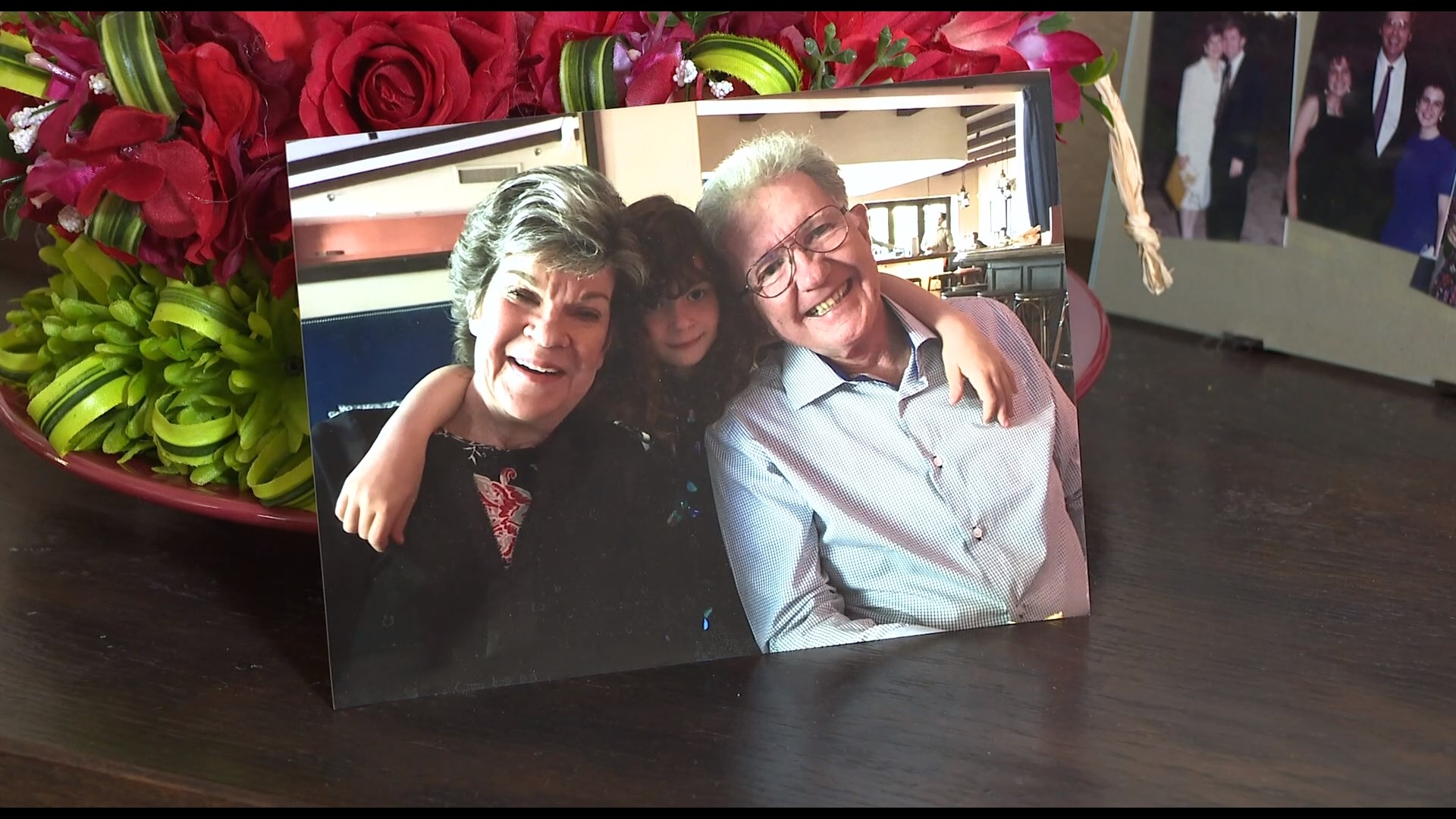PHOENIX — For Susan Mitchell and her husband, Tom, the gift of more time together and with their family was too good to pass up
"I see it as a lifeline to the life that I still want to have," Susan says.
For the last two months, Susan has been getting infusions every two weeks of the new FDA-approved medication Leqembi.
The drug is being called a game changer for patients who have been diagnosed in the early stages of Alzheimer's disease.
"There are many people who are sitting in nursing homes drooling. I'm not," Susan said, sitting in her north Phoenix living room next to her husband of 30 years.
Repeated herself in conversations
Susan is a 79-year-old former corporate executive with Apollo Group, the Phoenix-based company that started the University of Phoenix. She's also a two-time cancer survivor.
Tom said he grew concerned when Susan started to repeat herself in conversations.
"There's normal aging, and then there's a disease process. And they can be confused," he said.
Susan underwent a battery of tests at Barrow Neurological Institute that showed she was in the early stages of Alzheimer's disease, with mild symptoms. That made her a candidate for Leqembi.
"What they're proven they can do is delay the onset of more serious symptoms," Tom said. "That's got to be a home run. Why would you not do that?"
Why drug is a breakthrough
Dr. Meredith Wicklund of the Mayo Clinic said Lequembi was the first medication shown to have slowed the spread of Alzheimer's.
"That's a very important first step in terms of getting even better treatments and hopefully, someday, a cure," Wicklund said.
Wicklund is a neurologist who specializes in cognitive disorders such as Alzheimer's disease. She has done clinical trials on drugs in the Alzheimer's pipeline but had no role in Leqembi.
Leqembi targets a type of protein in the brain long thought to be one of the underlying causes of Alzheimer's disease.
"This medicine recognizes that bad protein in the brain and tells the immune system to clear it from the brain," she said.
Medication carries risks
The medication does carry serious risks.
Leqembi comes with an FDA's strongest safety warning about side effects, such as brain swelling or bleeding, that could lead to seizures or death.
"Despite these pretty significant risks," Wicklund said, "these individuals with Alzheimer's disease have a devastating disease that invariably progresses over time and robs them of ... lovable interaction with their family members.
"If we can preserve that for as long as possible, I think that can be worth it."
Tom Mitchell says he and Susan know the risks.
"We have no concern whatsoever," he said.
"This is an early intervention situation, just like cancer, like a lot of diseases."
Medicare covers some costs
The treatment has a list price of more than $26,000 a year. Medicare and private insurance could cover some of the cost.
Soleo Health, the company distributing the medication for the manufacturer, Tokyo-based Eisai, is scaling up to meet anticipated demand.
Soleo has four infusion centers in Arizona for patients. Nurses can administer the drug there or at a patient's home.
"We're providing all the resources, so whether or not it's adding nurses to our team, and all the other support staff that might be required," said Craig Vollmer, Soleo's chief commercial officer.
'Still free to be me'
Susan says the broader message of her experience is the need for families to have honest conversations when a loved one shows signs of dementia.
"Every family needs to know that they may have a member hiding their feelings and their behavior from them," she said.
"There need to be conversations among the family members, especially the adult children, so that they can help guide their parents to a place where they can be safe."
For now, Susan's life hasn't changed.
"She does pretty much everything she's always done," Tom said.
"I'm still free to be me," Susan said. "And it's really wonderful."
Up to Speed
Catch up on the latest news and stories on the 12News YouTube channel. Subscribe today.

